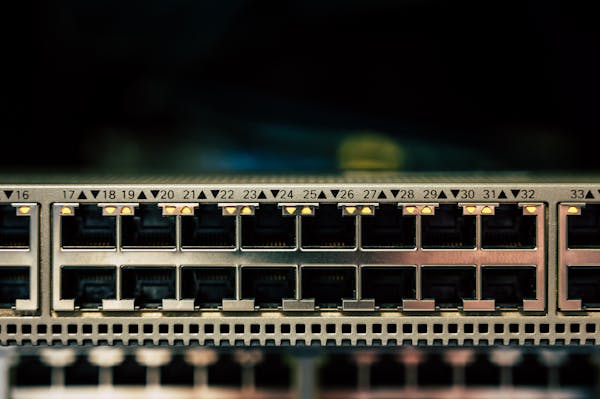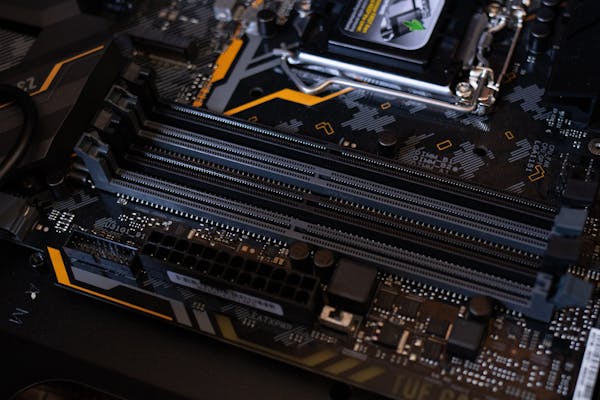
Understanding 4G Rotating Proxies
As internet privacy becomes paramount, mobile 4G proxies have emerged as a vital tool for bypassing geo-restrictions.
Defining 4G Rotating Proxies
These proxies utilize cellular data connections to provide changing IPs to users. Unlike static proxies, they rotate IPs after set intervals, enhancing anonymity.
How Do They Work?
When connected, users receive a 4G network IP. These IPs rotate based on time or requests, making tracking difficult.
Why Opt for 4G Rotating Proxies
- Increased Security: Dynamic IP rotation prevents tracking.
- Bypassing Geo-Restrictions: Changing IPs allow access to restricted content.
- Reduced IP Bans: Frequent IP changes prevent bans.
Use Cases for Mobile Proxies
- Information Gathering: Rotating IPs ensure continuous data collection.proxies facilitate automation.
- Marketing Research: Changing IPs monitor competitor strategies.
- o Consider}
Before selecting a provider, consider:
- IP Pool Size: A larger pool offers better rotation.
- Rotation Frequency: Determine if the service offers customizable intervals.
- Regional Availability: Access to multiple regions supports diverse tasks.
Potential Challenges
- Cost Implications: 4G proxies can impact budgets compared to other types.
- Connection Stability: Mobile networks can be less stable.
- Regulatory Concerns: Ensure usage avoids illicit activities.
Conclusion
4G rotating proxies offer unparalleled anonymity, positioning them as essential tools in contemporary online activities.
Exploring the Technical Mechanisms of 4G Rotating Proxies
Within the sphere of online anonymity, mobile 4G proxies have gained prominence for conducting secure web activities.
Defining 4G Rotating Proxies
These proxies employ mobile networks to rotate IP addresses to users. Unlike static proxies, they offer dynamic IP rotation, reducing detection risks.
Mechanism Behind 4G Rotating Proxies
Once initiated, a dynamic IP from a mobile network is provided. These IPs are switched periodically, hindering surveillance.
Benefits of Mobile 4G Proxies
- Increased Security: Dynamic IP rotation masks real IP addresses.
- Bypassing Geo-Restrictions: Changing IPs enable viewing of geo-blocked sites.
- Minimized Blocking Risks: Frequent IP changes circumvent anti-bot measures.
Applications of 4G Rotating Proxies
- Information Gathering: Rotating IPs ensure continuous data collection.
- Automated Posting: Dynamic proxies facilitate automation.
- Competitor Analysis: Changing IPs simulate diverse user locations.
Factors to Consider
In choosing a proxy service, consider:
- Number of Available IPs: A larger pool offers better rotation.
- IP Change Intervals: Determine if the service rotates per request.
- Location Options: Access to multiple regions aids in geo-testing.
Limitations to Be Aware Of
- Pricing Structures: 4G proxies can impact budgets compared to other types.
- Network Reliability: Mobile networks might experience fluctuations.
- Ethical and Legal Considerations: Ensure usage avoids illicit activities.
Final Thoughts
4G rotating proxies offer unparalleled anonymity, positioning them as essential tools in today’s digital age.
Today’s online landscape, maintaining online privacy and avoiding blocks has become more necessary than ever. Businesses, marketers, and developers often rely on proxies to simulate different locations. Among these, 4G rotating proxies have become game-changers.
But how do they compare to other alternatives like residential proxies? Let’s break it down.
== What is a 4G Rotating Proxy?
A LTE rotating IP proxy is a proxy that relays requests through real mobile networks. These proxies change IPs at preset intervals or upon request, emulating human behavior and eliminating the risk of bans or blocks.
== Main Proxy Types
Let’s outline the key proxy types before comparing:
1. **Datacenter Proxies**
– High-speed and cheap, but easily detectable.
2. **Residential Proxies**
– Use IPs assigned to real homes. More legit, but slower and costlier.
3. **4G Mobile Proxies**
– Use real SIMs on LTE networks. Ideal for automation and stealth.
4. **SOCKS5 Proxies**
– Protocol-based, flexible, used for various apps, not just HTTP.
== Comparison Table
| Feature | 4G Rotating Proxies | Datacenter Proxies | Residential Proxies | SOCKS5 Proxies |
|————————|———————|———————|———————|—————-|
| IP Source | Mobile Network (SIM)| Data Centers | Home IPs | Varies |
| Rotation | Yes (Frequent) | Sometimes | Optional | Manual |
| Ban Resistance | High | Low | Medium | Depends |
| Speed | Medium | High | Low-Medium | High |
| Price | High | Low | Medium | Low-Medium |
| Target Use | Social, Ads, Bots | General Scraping | E-commerce, Research| General |
| Block Detection | Low | High | Medium | Medium |
== Technical Advantages of 4G Rotating Proxies
Why choose 4G over anything else?
– **Real Device Trust**: Websites trust mobile IPs more than others due to carrier NAT and wide user pools.
– **Shared Reputation**: IPs are shared across many users, making banning a single user risky.
– **Geo-targeted Mobile Carriers**: Rotate between networks in real U.S. cities or countries.
– **Dynamic Rotation**: Can rotate every few minutes or after each request.
– **Bypasses Captchas**: Mobile IPs are less likely to trigger captchas or challenge verifications.
== Where 4G Proxies Win
Let’s be real— if you’re doing social media automation, nothing works better than a solid 4G proxy.
– Instagram and TikTok trust mobile IPs.
– Web scraping? You’ll trigger fewer blocks.
– Ads management across banned zones? Done.
== Where They Fall Short
– **Cost**: They’re premium priced.
– **Speed**: Slower than static datacenter options.
– **Limited Threads**: Some providers limit concurrent usage.
== SOCKS5 vs 4G: Protocol vs Behavior
SOCKS5 proxies are great tools. But they don’t have native rotation.

| Attribute | 4G Proxy | SOCKS5 Proxy |
|———————|——————–|——————–|
| Protocol Type | HTTP/HTTPS | SOCKS5 (All apps) |
| Rotation | Yes | Manual |
| IP Trust Level | Very High | Medium |
| Use Cases | Social, Ads, Bots | Torrenting, Apps |
== Use Cases Side-by-Side
**4G Rotating Proxies:**
– Social Media Management
– Mobile Ad Verification
– SEO Scraping
– Sneaker Bots / E-com Testing
– Marketplace Automation
**Datacenter Proxies:**
– High-volume scraping (non-sensitive)
– Speed-demanding tasks
– Price-conscious campaigns
**Residential Proxies:**
– E-com price intelligence
– Research tools
– CAPTCHA-heavy targets
**SOCKS5 Proxies:**
– Application-level traffic routing
– Anonymity over torrents
– Bypassing firewalls
== How to Choose the Right One?
Not all proxies are created equal. Here’s how to choose:
– Need speed? Go datacenter.
– Need trust and stealth? Go 4G mobile.
– Need app-level routing? Go SOCKS5.
– Need wide IP pools without rotation? Try residential.
== Future of 4G Rotating Proxies
With AI detection systems growing smarter, only mobile proxies are keeping up. We’re seeing:
– 5G proxy rollouts in testing
– Smarter rotation algorithms
– Integration with automation platforms like Jarvee, NextPost, Puppeteer
== Final Verdict
If you’re serious about anonymity, 4G rotating proxies are your best bet. For any campaign that’s running multiple accounts, it’s worth the investment.
== Spintax Conclusion
Whether you’re managing client accounts, investing in the right proxy is a make-or-break decision.
4G rotating proxies may cost more, but the results speak for themselves.
https://www.fortinet.com/resources/cyberglossary/proxy-server
https://en.wikipedia.org/wiki/Proxy_server
https://support.microsoft.com/en-us/windows/use-a-proxy-server-in-windows-03096c53-0554-4ffe-b6ab-8b1deee8dae1
https://www.reddit.com/r/explainlikeimfive/comments/1dfgepb/eli5_what_is_a_proxy_server_and_why_would_i_as_an/
https://surfshark.com/blog/proxy-server
Check more https://popl.co (Proxy Seller Coupon Code Discounts)
